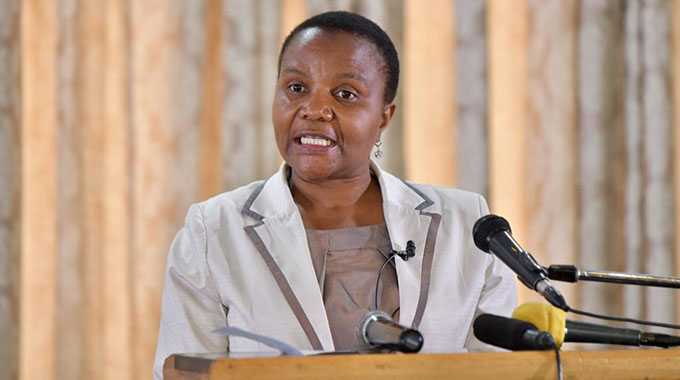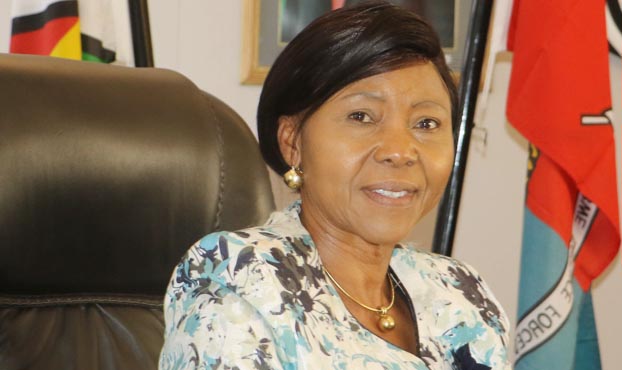Editorial Comment: Schools must focus on new approach

The re-opening of all classes within the next three weeks will come as a relief to parents and children as, in many ways, the breaks in every child’s education will be the longest lingering effects of Covid-19.
All schools and the parent Ministry of Primary and Secondary Education have been planning for the opening for some time and these preparations are almost complete at most schools, although a few will need help with things like face masks and other protective clothing, but that should not be a problem.
We know, from the third term last year, when infection rates were roughly similar to those we see today, that schools can open and operate safely so long as everyone is aware of Covid-19 and takes the necessary precautions.
In a school environment it is far easier to enforce rules and regulations than among adults, so safety measures can be maintained.
We even managed to bring back secondary schoolchildren writing O Level and A Level in January, during the height of the second wave, to finish writing their exams without adding to the outbreak of the second wave. So we know that even under severe testing the precautions we put in place do work.
There have already been queries about when teachers can be vaccinated, as school staff are scheduled for the second phase. But with the supply chain now established, principally from China, but with other welcome gifts in the pipeline, there should be adequate vaccine supplies available or imminent as schools open for this second phase.
This makes vaccination of most teachers fairly easy as teams can visit schools and vaccinate staff at their workplaces.
This would be simpler, and almost certainly quicker, than expecting teachers to join queues at their nearest vaccination centre, with all the transport problems that this would entail.
We assume, because of the education levels required for the teaching profession, that very few if any teachers will refuse vaccination.
But in any case, the vaccinations of staff are extra security. The basic barrier against infection will be the raft of precautions and preparations already ordered and now being finalised.
School life will not be “normal” with masks, spaced out desks and chairs, smaller classes and temperature scanning, but the schools will be back in operation and children will be taught.
While more teachers have been hired to help staff smaller classes, and while schools are using other rooms as additional classrooms, there will probably be need for some rotation of classes.
Government officials talk about blocks of children alternating in the classrooms and using distance education, which sounds like heavy homework loads, for those who have to stay at home for one or two days a week.
We assume that, as in the last term, some of the sporting activities will be curtailed at least and cramming all the children into a hall for assembly is obviously not going to happen.
The best we will see for many months is the core of schooling, the actual lessons, resuming with the extras coming in as and when health officials give the all clear. But that is what is vital.
The Ministry has indicated that school holidays are to be severely curtailed this year as officials plan for three normal length terms of around 55 teaching days. Staff and children will get weekends and public holidays off, but by the look of it the actual holidays will be just three weeks each.
Again this needs to be accepted to ensure that by the end of this year the worst potential damage from the necessary closure orders over the last 12 months has been significantly lessened even if it cannot be eliminated.
In some countries many children were able to use online teaching, but this is obviously not possible for a large majority of Zimbabwean children.
Most families do not have computers, laptops or tablets and would have to use very expensive wireless data links even if they did. So the children have to be at school, or at worst missing one or two days a week with extra homework.
The Ministry has also been adjusting teaching programmes to help make the catch-up possible and then to speed progress. What can be eliminated is being eliminated, and teachers will start the term by filling in the gaps for what was missed last year.
All this will require a great deal of co-operation from parents who will have to go easier on household chores, try and find somewhere where children can sit quietly and do the extra inevitable homework, and give the moral and other support that sometimes very tired children will need as they press ahead in catching up.
Deferment of some afternoon activities will obviously help create extra time, but a good home environment seems essential. It is going to be a long haul for teachers, children and parents, but the rewards are immense.
For quite a large group of parents, or even grandparents now, this may seem a bit like their own childhood, in the 1980s when the education system was being dramatically expanded in the years after independence.
Classes were held in any available room at many secondary schools or in those “Upper Tops”. This time it will be easier, since almost all teachers will be qualified, unlike those days when so many were teaching in the day and studying in their own distance-education courses in the evenings.
But we managed then so it should be a lot easier to manage now.








Comments